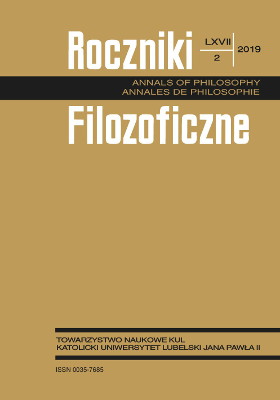Bóg jako primum cognitum – dyskusje i kontrowersje (bł. Duns Szkot, Henryk z Gandawy, św. Tomasz z Akwinu, św. Bonawentura, Mikołaj z Kuzy)
God as primum cognitum — Discussions and Controversies (Duns Scotus, Henry of Ghent, Thomas Aquinas, Bonaventure and Nicholas of Cusa)
Author(s): Agnieszka KijewskaSubject(s): Philosophy, History of Philosophy, Special Branches of Philosophy, Ancient Philosphy, Philosophy of Middle Ages, Philosophy of Religion
Published by: Towarzystwo Naukowe KUL & Katolicki Uniwersytet Lubelski Jana Pawła II
Summary/Abstract: In this article, I present the conception of the first object of human intellect (primum cognitum) in the thought of the leading representatives of 13th century Scholasticism. The first object of a cognitive faculty is the essence that determines the proper domain of that faculty; thus the first object of human intellect is what defines the possible extension of human epistemic possibilities. The conception of the first object of human intellect presupposes and implies definite solution of important epistemological, metaphysical, and anthropological questions. While one current of scholastic opinion, represented by St. Bonaventure and Henry of Ghent favored God as the first object of human intellect, more empirically minded Aquinas upheld the Aristotelian position that the proper object of human intellectual cognition is the essence of material reality; Duns Scotus evolved an elaborate position that tried to steer the middle course between the solutions of his predecessors and overcome the one-sidedness of their insights. Finally, I proceed to vindicate my opinion, that the epistemology of the 15th century thinker Nicholas of Cusa remained under significant influence of the scholastic debates and solutions.
Journal: Roczniki Filozoficzne
- Issue Year: 67/2019
- Issue No: 2
- Page Range: 5-30
- Page Count: 26
- Language: Polish

